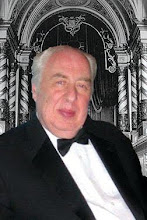Friday, December 17, 2010
 Oscar & Emmy Musings: Golden Globe Nominations on the Radar
Oscar & Emmy Musings: Golden Globe Nominations on the Radar
Post-mortems on the recent announcement of the Golden Globe nominations for movies and television were predictably less about the heavy favorites that predictably got much of the love (The King's Speech, the nominee leader with 7, followed by The Social Network and The Fighter with 6 each), then several critical darlings that got royally screwed. Foremost among them are the Coen Brothers’ expansive remake of True Grit, which was shut out; and Ben Affleck’s gritty bank-robbery drama The Town, which scored but a single nomination (Jeremy Renner’s supporting turn).
And then, of course, came the howlers—out-of-left-field nominations for performances and films that seem to make no sense whatsoever, until you remember that the Hollywood Foreign Press Association, an assemblage of less than 100 entertainment journalists and freelancers, is not taken all that seriously. And it never will be when it produces multiple nominations for the likes of pedestrian works such as The Tourist and Burlesque. As predictors for eventual Oscar nominees and winners, the Golden Globes has a mixed record—its Best Picture last year, for example, was Avatar, while the Oscars chose The Hurt Locker), but what Globes recognition does yield is enormous promotional value for print and broadcast Oscar campaigns. As for the television selections—for shame HFPA for overlooking Blue Bloods—in terms of influencing the Emmys, less so.
If there is one odds-on, overwhelming Oscar favorite this year, it is Colin Firth as Best Actor for The King’s Speech. It is a stunning, richly textured and emotionally charged performance (as England’s future King George VI, suffering from a severe stammering problem) in a handsomely mounted, crowd-pleasing film that doesn’t leave many dry eyes in the house. No less effective is Geoffrey Rush as Lionel Logue, the unorthodox Australian therapist who helps the monarch.
Rush (a previous Best Actor winner for Shine!) will almost certainly get a Supporting Actor nomination, and that will beg the question for many as to why exactly Rush, who shares above-the-title screen credit with Firth and seems to have as much screen time as him, shouldn’t be nominated in a lead rather than supporting category. But then we know the answer, don’t we? The producers won’t want to split the vote.
Read more: Technorati.
And then, of course, came the howlers—out-of-left-field nominations for performances and films that seem to make no sense whatsoever, until you remember that the Hollywood Foreign Press Association, an assemblage of less than 100 entertainment journalists and freelancers, is not taken all that seriously. And it never will be when it produces multiple nominations for the likes of pedestrian works such as The Tourist and Burlesque. As predictors for eventual Oscar nominees and winners, the Golden Globes has a mixed record—its Best Picture last year, for example, was Avatar, while the Oscars chose The Hurt Locker), but what Globes recognition does yield is enormous promotional value for print and broadcast Oscar campaigns. As for the television selections—for shame HFPA for overlooking Blue Bloods—in terms of influencing the Emmys, less so.
If there is one odds-on, overwhelming Oscar favorite this year, it is Colin Firth as Best Actor for The King’s Speech. It is a stunning, richly textured and emotionally charged performance (as England’s future King George VI, suffering from a severe stammering problem) in a handsomely mounted, crowd-pleasing film that doesn’t leave many dry eyes in the house. No less effective is Geoffrey Rush as Lionel Logue, the unorthodox Australian therapist who helps the monarch.
Rush (a previous Best Actor winner for Shine!) will almost certainly get a Supporting Actor nomination, and that will beg the question for many as to why exactly Rush, who shares above-the-title screen credit with Firth and seems to have as much screen time as him, shouldn’t be nominated in a lead rather than supporting category. But then we know the answer, don’t we? The producers won’t want to split the vote.
And that, in turn, may likely hurt the nomination chances of a true supporting male performance in The King’s Speech that has not gotten nearly enough attention. Guy Pearce, an always interesting and occasionally eccentric actor with those wonderful John Malkovich-like dramatic tics, gives one of his most complex and understated performances as King Edward VIII, whose affair with Baltimore divorcee Wallis Simpson scandalizes the royal family and leads him ultimately to abdicate the throne for “The woman I love.”
When you get right down to it, actual performance time in a film hardly seems to matter one way or another. Several supporting Oscar winners triumphed despite being on screen in their films less than 10 minutes (Anthony Quinn in Lust for Life, Beatrice Straight in Network and Judi Dench in Shakespeare in Love), so if Rush doesn’t mind having his meaty role—one that could well carry its own film, say, The King’s Speech Therapist—relegated to a supporting category, it probably makes strategic sense. Because there’s no way he—or anyone else—is beating Firth.
When you get right down to it, actual performance time in a film hardly seems to matter one way or another. Several supporting Oscar winners triumphed despite being on screen in their films less than 10 minutes (Anthony Quinn in Lust for Life, Beatrice Straight in Network and Judi Dench in Shakespeare in Love), so if Rush doesn’t mind having his meaty role—one that could well carry its own film, say, The King’s Speech Therapist—relegated to a supporting category, it probably makes strategic sense. Because there’s no way he—or anyone else—is beating Firth.
Subscribe to:
Post Comments (Atom)


0 comments:
Post a Comment